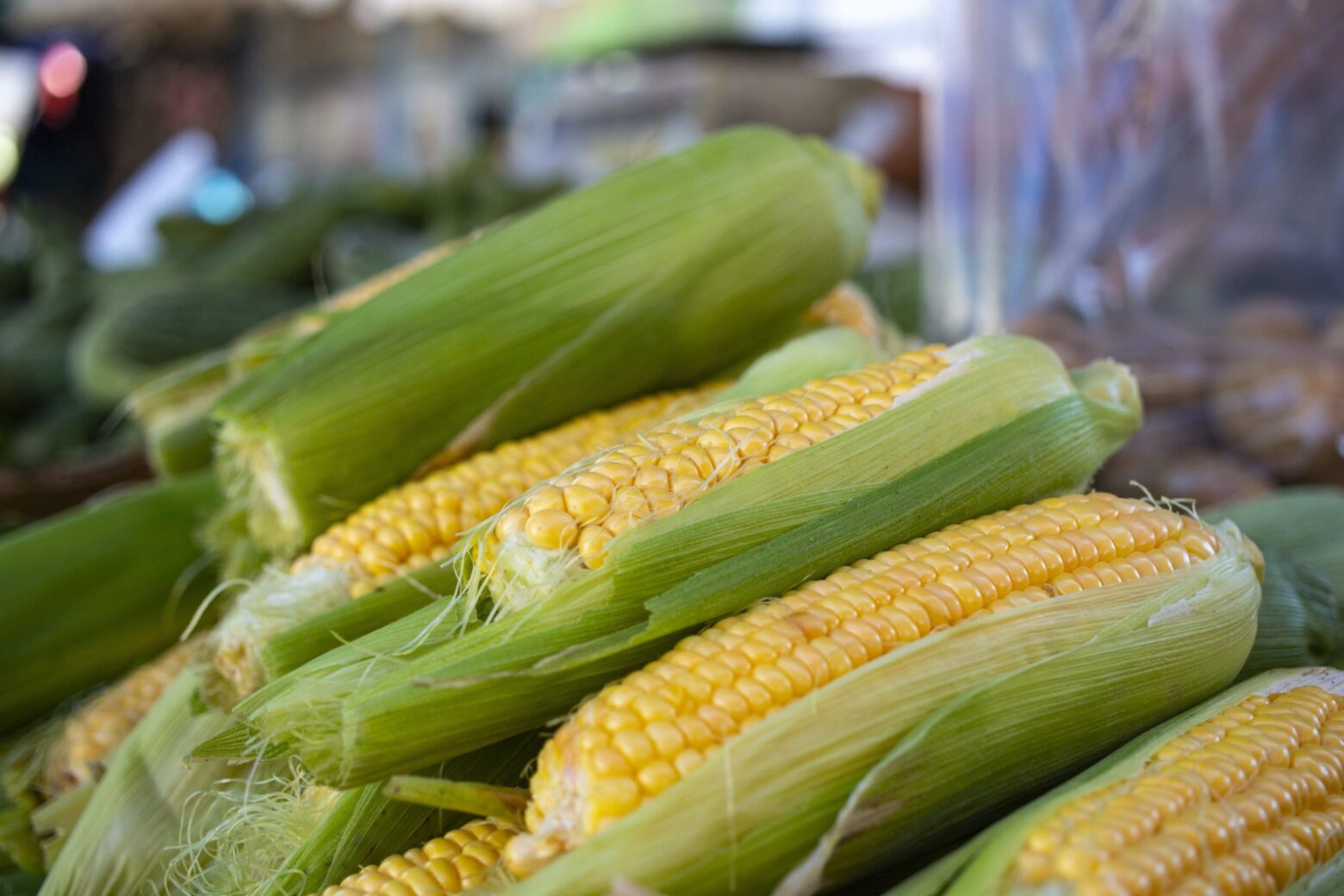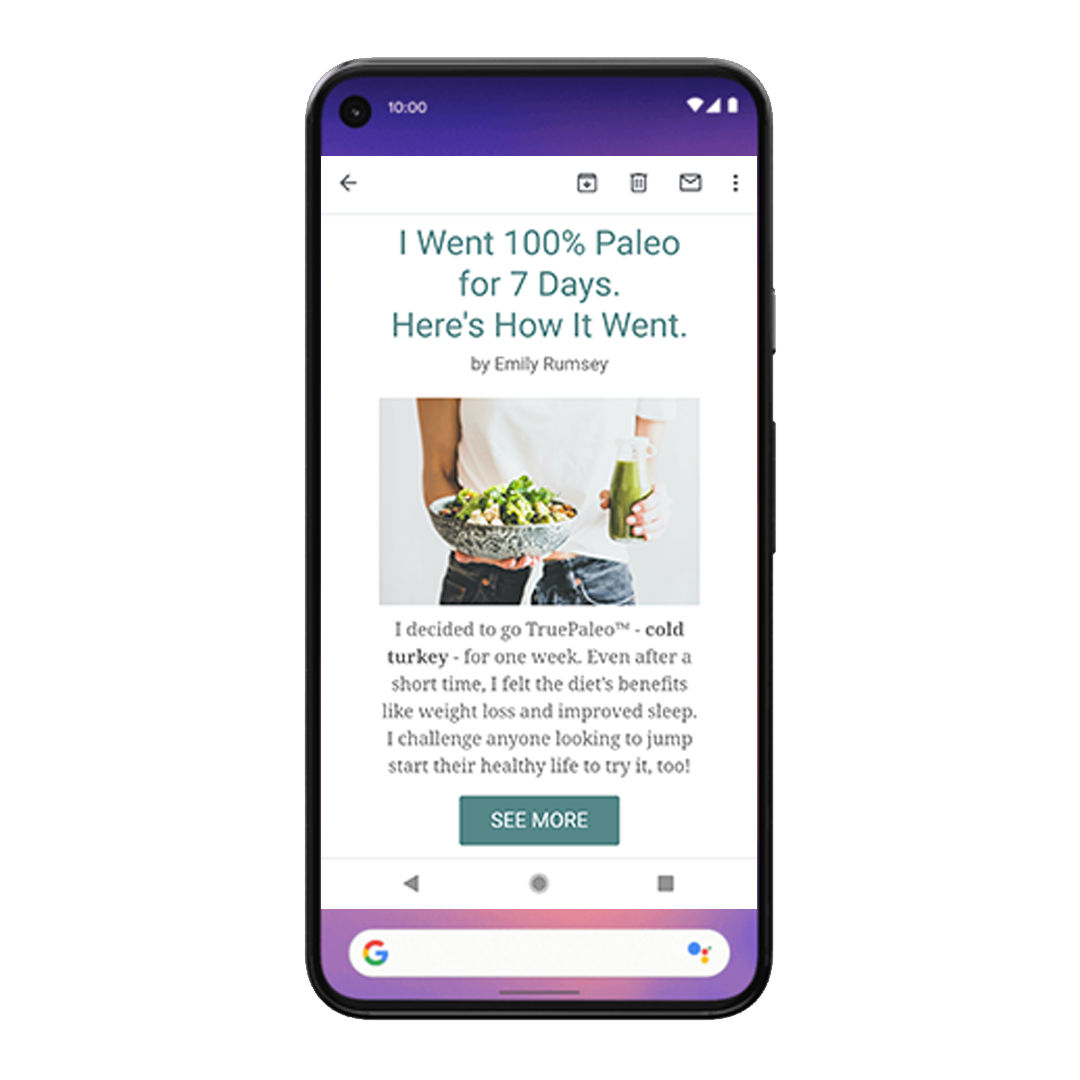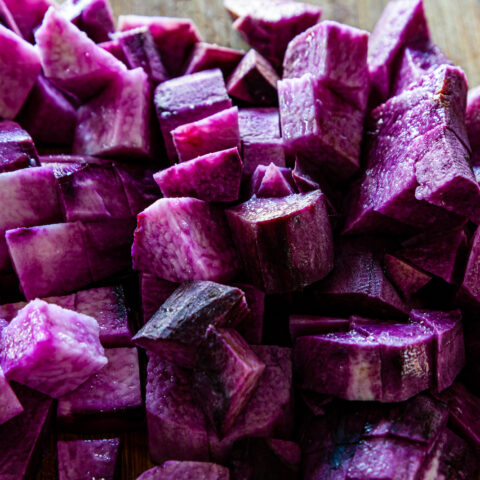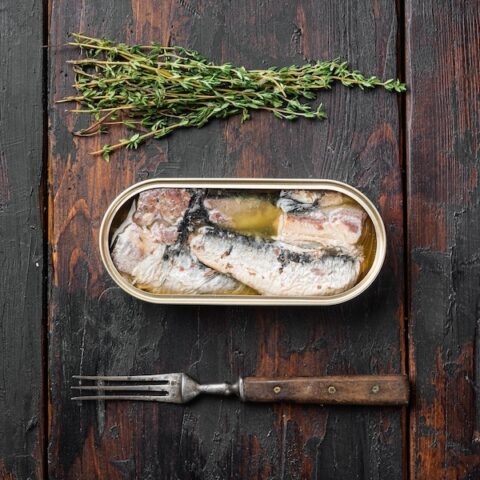Is Sweet Corn Paleo?

While you know you’re supposed to load up on veggies on The Paleo Diet®, sweet corn is not on the menu. Why is that? In short, sweet corn is not a vegetable, despite what food brands might have you believe. Corn is not Paleo because it’s a grain. We’ll explain why corn is categorized differently based on when it’s harvested, and why eating any type of corn can be harmful to your health.
Corn Is Sometimes a Veggie, Sometimes a Grain?
According to the USDA, corn can be considered either a grain or a vegetable based on when it is harvested. Sweet corn, which is the immature state defined as when the kernels are still juicy, is considered a starchy vegetable by the USDA. Only when it’s harvested fully mature and dry, and can be milled into cornmeal, does the USDA consider it a grain. [1]
Of course, vegetables don’t just “grow into” grains. While it may be an issue of semantics, we consider sweet corn to be a cereal grain because corn is a member of the grass family and the cob of corn is its grass seed. Regardless of how it may be classified, sweet corn, dried corn, and processed corn products all contain the same harmful anti-nutrients, which mean corn is best avoided.
Why Sweet Corn Is Bad for Your Health
Sweet corn, unlike vegetables, is bad for your digestion, and can promote weight gain over weight loss. Here are three major ways that eating sweet corn can negatively impact your health.
1. Corn Can Spike Your Blood Sugar
Here at The Paleo Diet, we recommend focusing on foods with a low glycemic load, which means that the food will only minimally impact blood sugar and insulin levels.
Since corn is high in starch, it’s also high on the glycemic index. [2] That means that corn can spike blood sugar levels, which often leads to fatigue, bloating, and unnecessary weight gain.
2. Corn Contains Potentially Harmful Anti-Nutrients
Corn was not eaten before the advent of agriculture, let alone Paleolithic times, so our bodies have not evolved to handle the consumption of corn, particularly as a staple food.
Corn and other cereal grains contain the harmful compounds lectins and prolamins. [3-4] These sneaky anti-nutrients can negatively impact nutrient absorption and also cause inflammation in the body. This digestive disruption can also lead to leaky gut syndrome and can trigger the initiation and development of autoimmune diseases. [5]
3. Most Corn Is Genetically Modified
If you’re not yet convinced that corn’s golden gems can cause your body grief, you’ll be surprised to learn that 92 percent of corn planted in the United States has been genetically modified. [6]
GMOs, or genetically modified organisms, refer to any crop whose DNA has been modified using genetic engineering technology, and not just simple selective breeding. While the health implications of consuming GMOs is a common debate in the scientific community, what we do know is that GMOs create antibiotic-resistant genes in the gut bacteria of those who eat them. (7) That’s bad news if you’re sick and need to take antibiotics!
Since GMO foods are new inventions and so their long-term effects on human beings are unknown.(8) Since GMO foods like most corn products were unavailable in our ancestors’ diet, corn is not a Paleo-friendly food choice.
How to Avoid Corn
Corn can show up in our food in tricky ways. Read labels carefully: Corn can hide as high-fructose corn syrup, corn meal, corn starch, and even the innocuous-sounding vegetable oil.
High-fructose corn syrup hides in a lot of our foods, even surprising places like yogurt, cereal, ketchup, and salad dressings. This artificial sugar made from corn starch is added to processed food to extend their shelf life and to amplify flavor. Its sweetness has an addictive quality that makes consumers want more, all while adding an unnatural amount of fructose to your diet. In other words, consuming high-fructose corn syrup is like adding table sugar to your meal.
Weight gain and obesity has been directly linked to the consumption of high-fructose corn syrup and is especially a cause for concern for those living with diabetes. [9]
Think you’ll miss your side serving of corn in the summer? You can easily replace it with riced broccoli or cauliflower. We’re especially partial to this Paleo Cilantro Lime Broccoli recipe!
The Bottom Line
While corn is often considered a vegetable, it’s important to remember that corn is actually a grain. Our bodies are incapable of properly digesting corn, and eating it can cause issues like bloating, inflammation, and weight gain. Corn shows up in in many ways besides just on the cob, so it’s always important to read food labels!
References:
1. AskUSDA [Internet]. Ask.usda.gov. 2021 [cited 7 July 2021].
2. Glycemic index for 60+ foods – Harvard Health [Internet]. Harvard Health. 2021 [cited 7 July 2021].
3. Dabravolski SA, Kavalionak YK. Effect of corn lectins on the intestinal transport of trace elements. J Consum Prot Food Saf. 2020;15(2):163–70.
4. de Punder K, Pruimboom L. The dietary intake of wheat and other cereal grains and their role in inflammation. Nutrients. 2013;5(3):771–87.
5. Mu Q, Kirby J, Reilly CM, Luo XM. Leaky gut as a danger signal for autoimmune diseases. Front Immunol. 2017;8:598.
6. Center for Food Safety, Applied Nutrition. GMO crops, animal food, and beyond [Internet]. Fda.gov. 2020 [cited 2021 Jul 7].
7. Keese P. Risks from GMOs due to horizontal gene transfer [published correction appears in Environ Biosafety Res. 2008 Jul-Sep;7(3):151]. Environ Biosafety Res. 2008;7(3):123-149. doi:10.1051/ebr:2008014.
8. Bawa AS, Anilakumar KR. Genetically modified foods: safety, risks and public concerns-a review. J Food Sci Technol. 2013;50(6):1035–46.
9. Forshee RA, Storey ML, Allison DB, Glinsmann WH, Hein GL, Lineback DR, et al. A critical examination of the evidence relating high fructose corn syrup and weight gain. Crit Rev Food Sci Nutr. 2007;47(6):561–82.
Irene Jay
Irene Jay is a Holistic Health Coach and a certified Nutrition Coach from Vancouver, BC.
More About The Author




